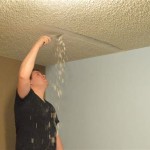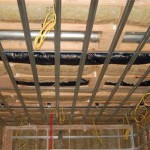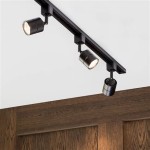Best Insulation For Basement Ceilings
Insulating your basement ceiling is a great way to improve the comfort and energy efficiency of your home. By keeping the cold air out and the warm air in, you can reduce your heating bills and make your basement more livable. There are many different types of insulation available, so it's important to choose the one that's right for your needs.
One of the most popular types of insulation for basement ceilings is fiberglass. Fiberglass is a lightweight and inexpensive material that is easy to install. It's also fire-resistant, which makes it a good choice for basements. However, fiberglass can be itchy and irritating to the skin, so it's important to wear gloves and a mask when working with it.
Another popular type of insulation for basement ceilings is cellulose. Cellulose is a natural material that is made from recycled paper. It's a good insulator and it's also fire-resistant. However, cellulose is more expensive than fiberglass and it can be difficult to find in some areas.
If you're looking for a more environmentally friendly option, you can consider using spray foam insulation. Spray foam is a type of polyurethane that is applied as a liquid and then expands to fill the space. It's a very effective insulator and it can also help to seal air leaks. However, spray foam is more expensive than fiberglass or cellulose and it can be difficult to install yourself.
No matter what type of insulation you choose, it's important to make sure that it's installed correctly. Improperly installed insulation can actually make your basement colder and less energy-efficient. If you're not sure how to install insulation yourself, it's best to hire a professional.
Here are some tips for choosing the best insulation for your basement ceiling:
- Consider the climate in your area. If you live in a cold climate, you'll need to choose an insulation that has a high R-value. R-value is a measure of how well an insulation resists heat flow. The higher the R-value, the better the insulation.
- Think about the moisture levels in your basement. If your basement is damp or humid, you'll need to choose an insulation that is moisture-resistant. Moisture can damage insulation and make it less effective.
- Consider the cost of the insulation. Insulation costs vary depending on the type of insulation and the R-value. It's important to compare the cost of different insulation options before making a decision.
- Get professional help if needed. If you're not sure how to install insulation yourself, it's best to hire a professional. A professional can help you choose the right insulation for your needs and install it correctly.
By following these tips, you can choose the best insulation for your basement ceiling and improve the comfort and energy efficiency of your home.

Should I Insulate My Basement Ceiling And Walls Aire Serv

A Guide On Basement Ceiling Insulation

Basement Insulation Upstate Spray Foam

How To Insulate And Seal Rim Joists

Ceiling Wall Services Foam Tech

7 Best Kinds Of Insulation For Basement Ceilings Homelyville

How To Finish A Basement Diy

What Is Basement Ceiling Insulation And It Worth

How To Install Ceiling Insulation In A Basement Or Crawlspace Why You Should R30 R21 R19 R13 Youtube

Insulation Between Basement And First Floor Why It Matters For Your Home 1 800 Remodel








